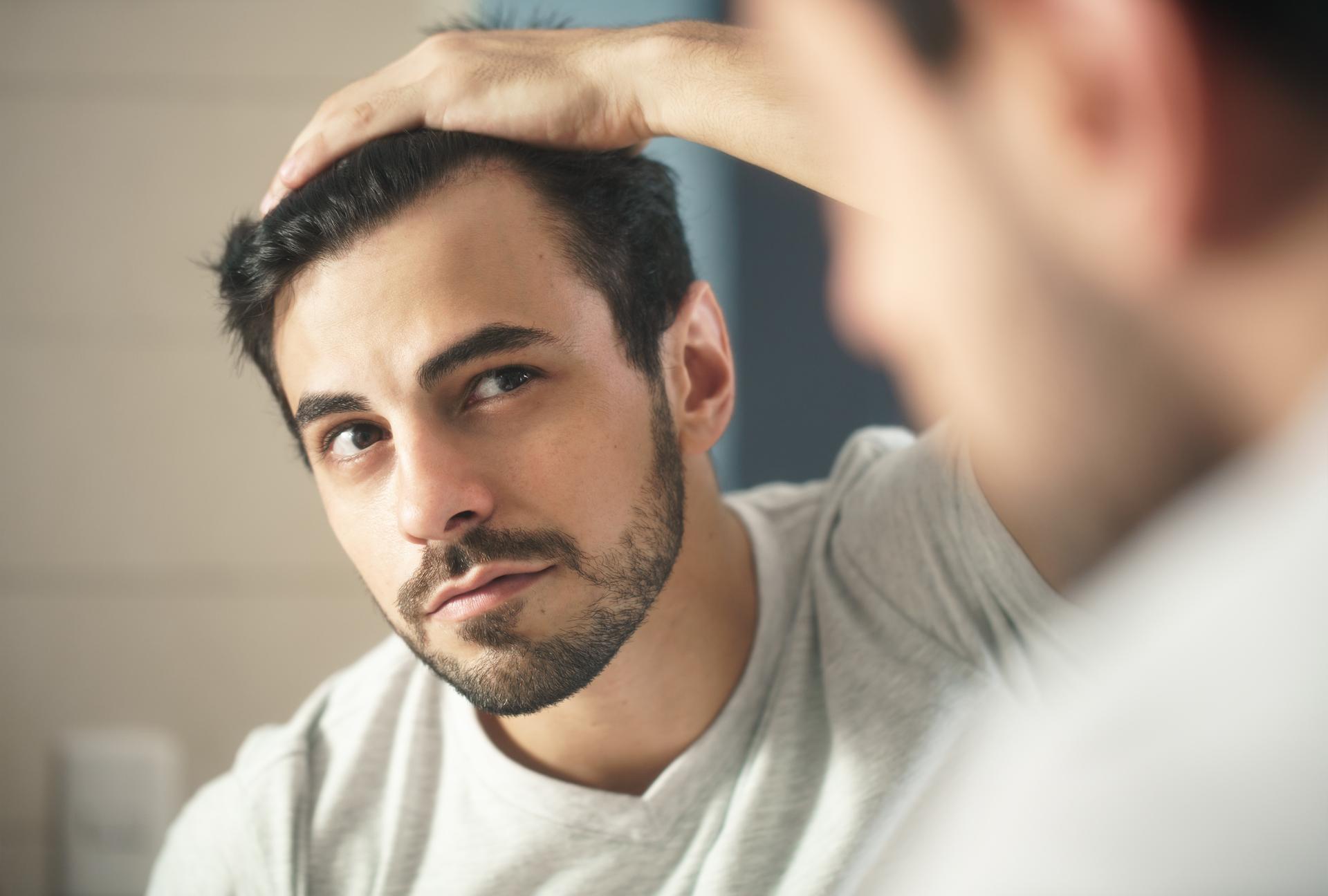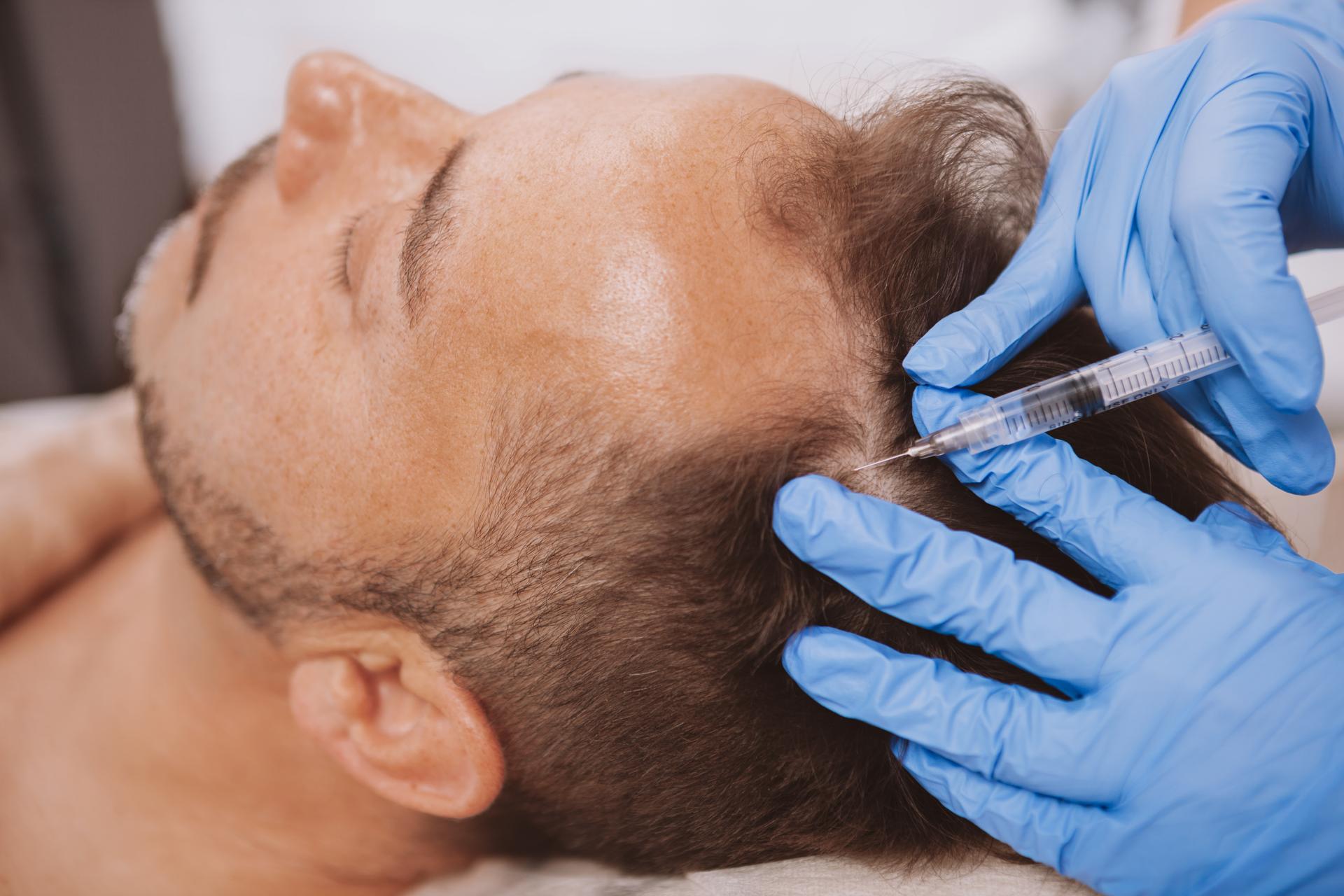Numerous factors can influence hair loss such as genes (family history), medical conditions like hormonal imbalance and immune disorders, emotional trauma, and more. However, what most people do not realize is that hair loss is related to their diet. For healthy hair growth, nutrients, vitamins, and minerals are essential. If your body is not getting any of these via your diet, you are likely to experience hair loss.
Studies prove the link between nutrient deficiencies and chronic telogen effluvium, female pattern hair loss, alopecia areata, and androgenetic alopecia. Therefore, before considering hair transplant options, many patients seek dietary recommendations and vitamin supplements to counter hair loss.
Let us look at some of the nutrient deficiencies that cause hair loss:
1. Iron
Iron deficiency is a very common form of nutrient deficiency and a major cause of hair loss. Iron helps red blood cells carry oxygen throughout the bloodstream. Without enough iron, the blood cells cannot deliver enough oxygen to the body, resulting in symptoms like hair loss, brittle nails, and fatigue.
3. Zinc
Zinc is a crucial nutrient for healthy hair. It plays a vital role in cell and immune function and protein synthesis. A deficiency of zinc is a key cause of telogen effluvium and brittle hair. Pregnant women, alcoholics, people with digestive disease, and vegetarians are more prone to zinc deficiency.
3. Fatty acids
Omega-3 and Omega-6 are essential fatty acids that reduce inflammation and aid hair growth. Deficiency of these can lead to hair loss from the scalp and eyebrows and hair lightening. Fatty acids can be obtained from fish like salmon, mackerel, sardines, as well as from eggs, flaxseed, walnuts, or supplements/oils.
4. Niacin
Niacin or vitamin B3 plays a huge role in lustrous hair growth. It helps in boosting energy and enhancing blood flow to the scalp. Niacin deficiency is linked to conditions like diarrhea, dementia, alopecia, and more. It is found in foods like nuts, eggs, mushrooms, beef, and tuna.
5. Vitamin D
Vitamin D stimulates cell growth, boosts immunity, leads to better skin and stronger bones, and stimulates old and new hair follicles. It enhances immune health and counters inflammatory responses that may cause poor hair growth, including conditions like alopecia areata, and alopecia totalis.
6. Selenium
Selenium is a trace mineral that plays several vital functions in the body, including hair growth. It has antioxidant properties that enhance the metabolic functioning of the body and also help maintain hormonal balance, essential for the production of healthy hair.
7. Vitamin E
Vitamin E has antioxidant properties that fight oxidative stress and damage to cells and tissues in the body caused by free radicals, including the damage caused to hair follicle cells. Vitamin E also plays a role in circulation and supply of oxygen throughout the body, including circulation in the scalp.
8. Vitamin A
Besides helping maintain healthy bones, skin, and teeth, Vitamin A is also known to activate hair follicle stem cells. Vitamin A helps in the creation of Sebum, an oily substance that moisturizes the scalp and keeps hair healthy.
9. Biotin
Biotin or vitamin B7 reportedly enhances hair growth by enriching the keratin structure of the hair. To obtain biotin, follow a diet rich in meat, eggs, nuts, and dairy products.
10. Folic Acid
Folic acid is a vitamin that is vital for the generation of cell growth in the skin tissues as well as in the nails and hair. Folic acid also helps in keeping the red blood cells healthy. It can be obtained through leafy greens, fruits, nuts, meat, poultry, and beans.
11. Antioxidants
Antioxidants are compounds that counter oxidative and stress-linked damage to hair loss. Substances like zinc, vitamin A and E, selenium, and vitamin C can be classified as antioxidants. Foods like plants, fruits, vegetables, and grains offer safer and healthier compounds as compared to supplements.
12. Amino Acids and Proteins
Protein deficiency leads to hair loss and hair thinning. Amino acids help in several body functions including tissue repair, hormone regulation, enhancing immune health, breaking down food, and hair growth.
A search of the keywords “hair loss supplements” can bring up a variety of health and dietary supplements.
Should a hair loss patient get tested for nutrient deficiency? Does any evidence suggest that using these nutrient supplements is useful?
Physicians must be able to respond to these questions with proper evidence while also keeping the patient’s situation in mind. These supplements have risks and in the absence of a deficiency, they may be harmful to hair.
Want to learn more about the best hair loss treatments for you? Contact our expert professionals at the New Jersey Hair Restoration Center today for all your hair loss related queries.


